The story was originally published in The New York Times, October of 2017.
The Rohingya people have been desperately escaping Myanmar, the country where they have faced persecution for generations. The situation now borders on genocide and more than 700,000 have fled just in the past few months to find safety in the neighboring Bangladesh.
Though the refugees are mostly in camps in Cox Bazar, Bangladesh, Rohingyas also been trickling into the United States in recent years. Over 400 families have settled in Rogers Park on Chicago’s North Side, one of the country’s largest concentrations of Rohingya. The body of work explores their journey to assimilate into American life while staying true to the traditions of their home country and Islam.
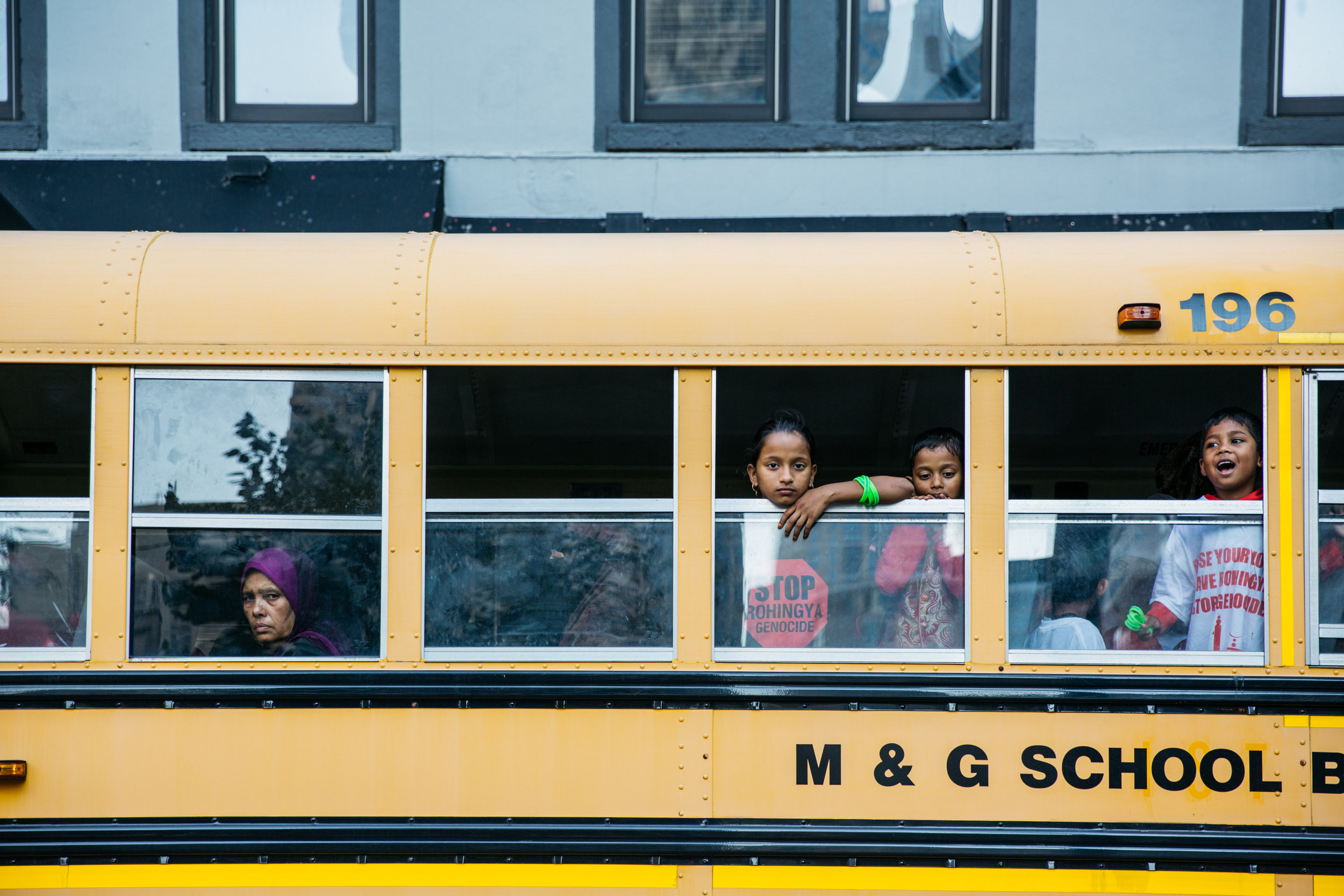
Children shouting, "Please save Rohingya," as their bus left a rally in Downtown Chicago
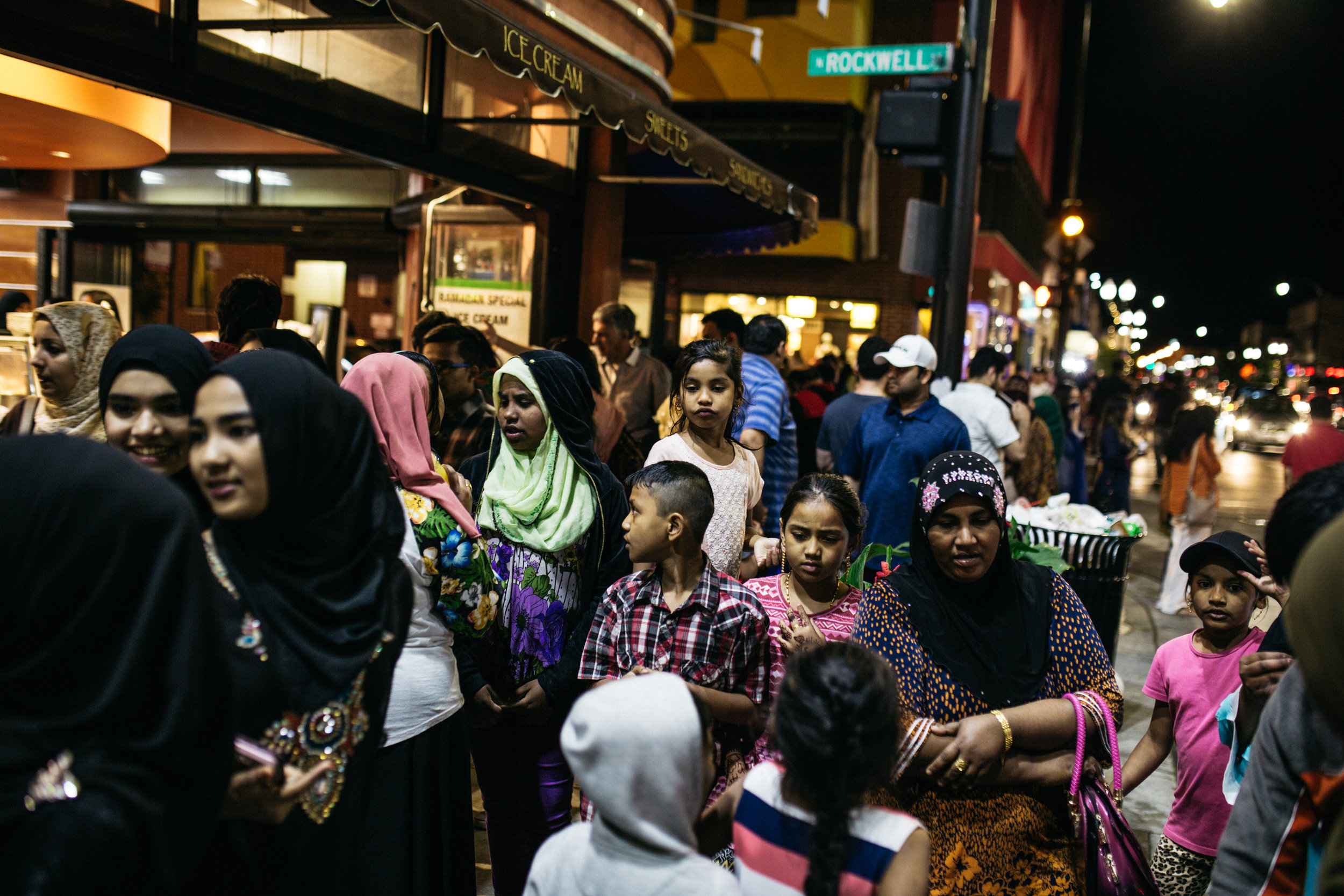
Rohingya women and children join other muslim neighbors to fill Devon Avenue in celebration of Ramadan.
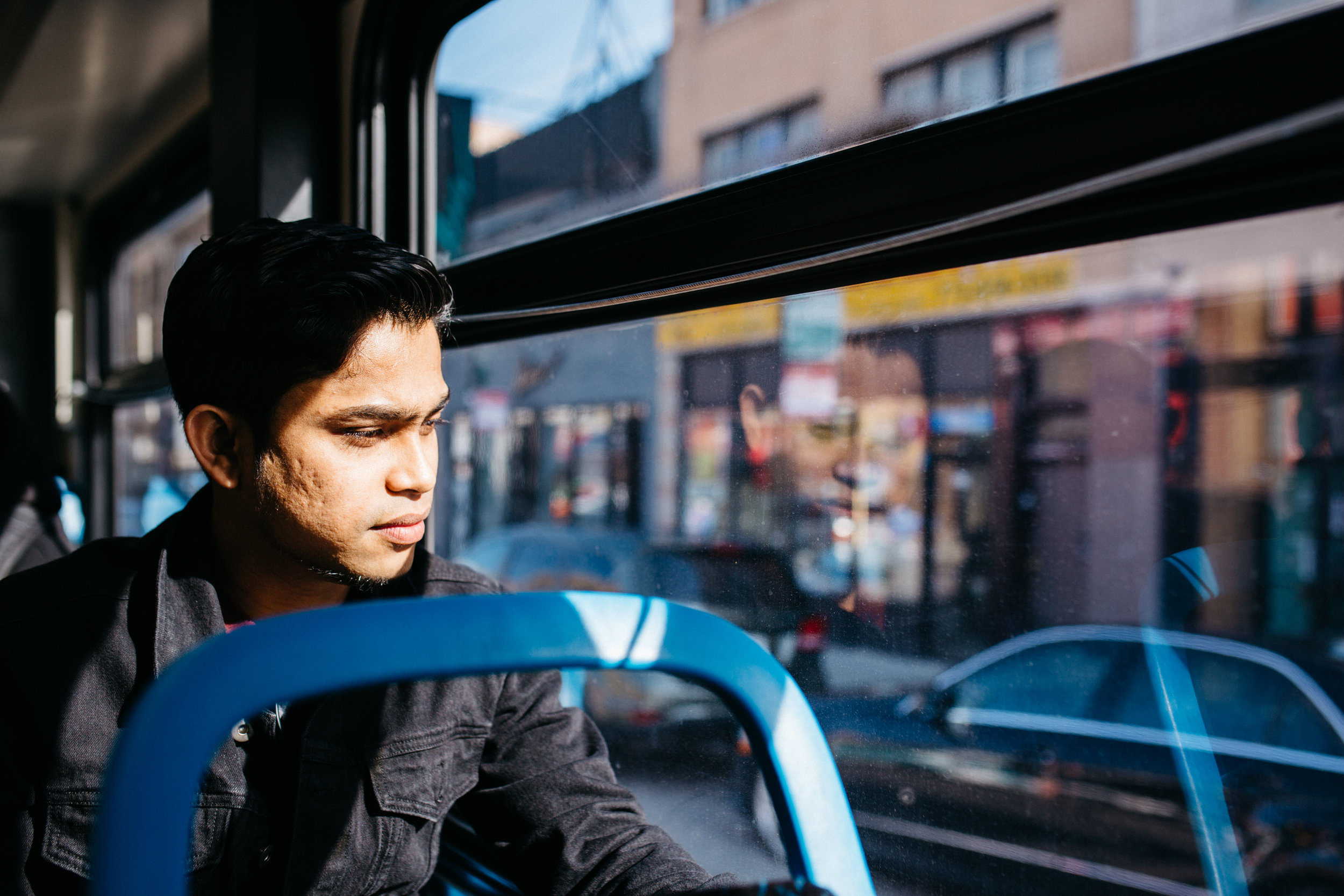
Abdul Samad was resettled in the United States two years ago with his father after escaping to Malaysia from Myanmar. He had to leave behind his mother and siblings. “I went through many mountains and forests and we took a boat for almost one month. From Burma to Malaysia. I was in Thailand for a week. I saw people die on the boat. I went without eating for one week,” he says.

Abdul Samad with his wife, Bibi, 18, on Lake Michigan. They met in the United States in 2016.
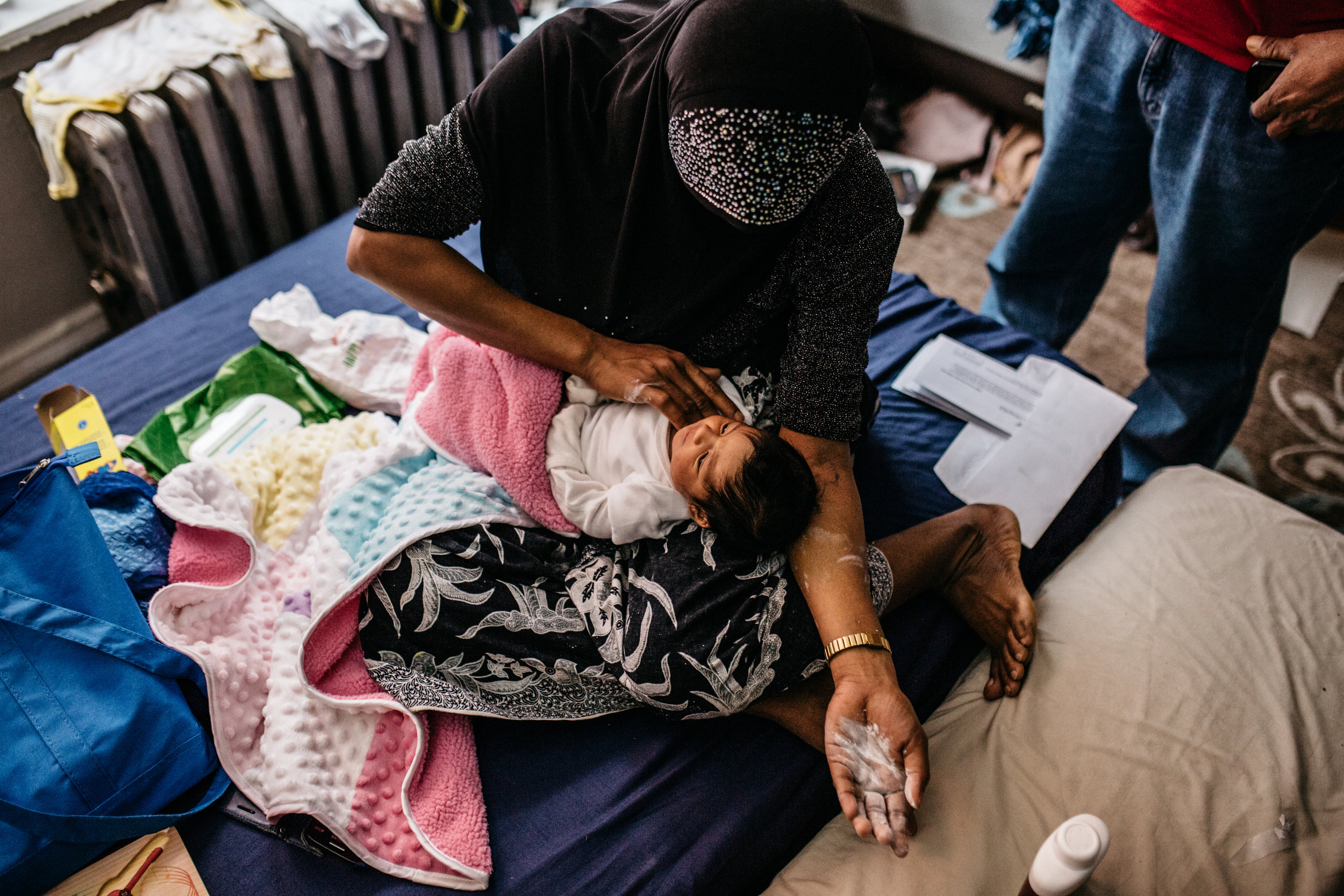
Laila Nobihousen, 20, tending to her 5-day-old baby. In 1982, Myanmar’s military junta revoked the citizenship of most Rohingya, rendering them stateless. So Laila’s child, born an American, is the first person in her family to have any citizenship.

Lalia Nobihousen prepares dinner for her family on the floor of their apartment in Roger's Park, Chicago. Laila and her husband share an apartment with another couple. The women first met during their escape from Myanmar by boat.“I can’t forget my culture and my village and parents,” Ms. Nobihousen said. “We lived together. Everything, I can’t forget. Right now I just think, one day we go back to our country and tell them we are American, educated people.”
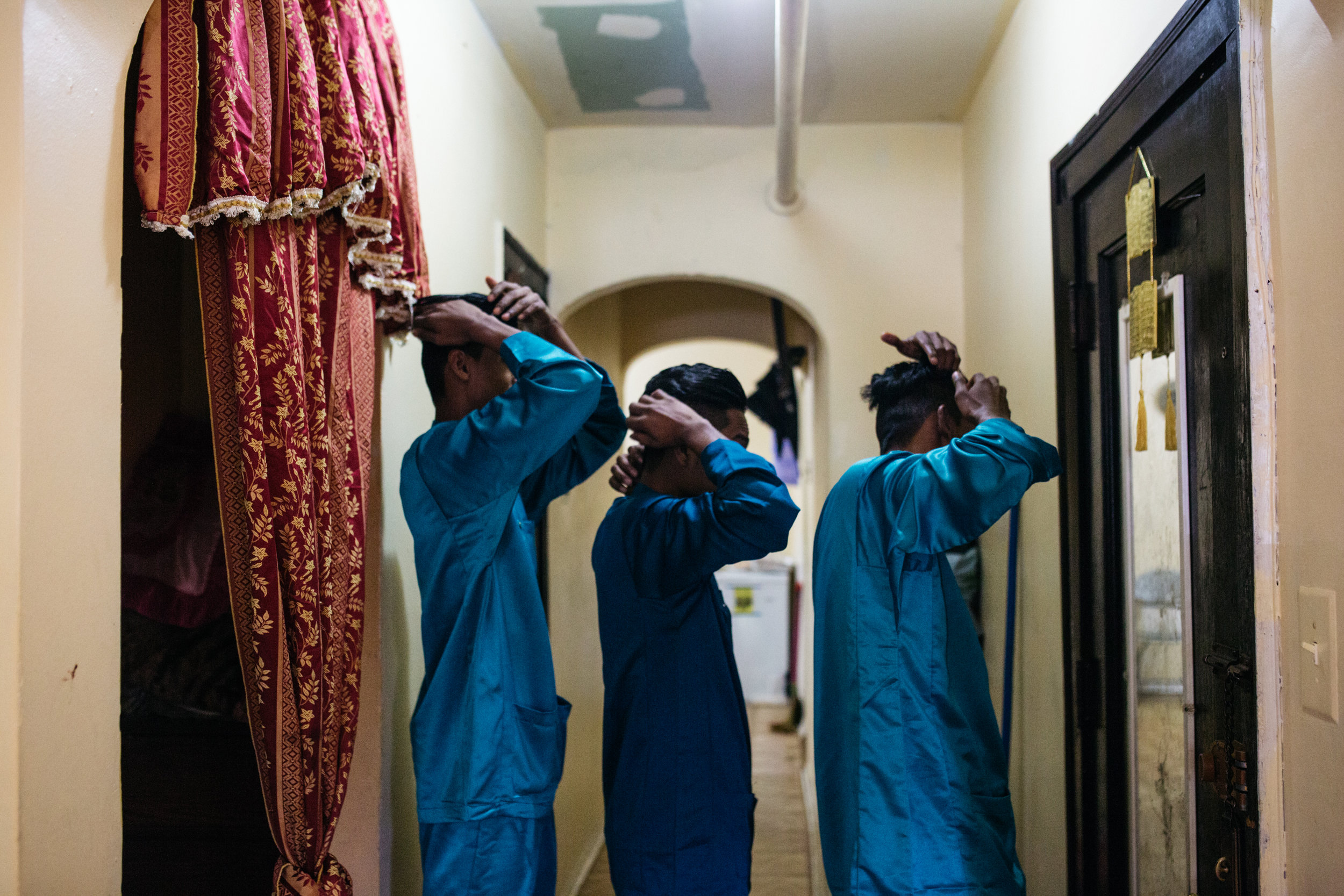
Young men preparing for Eid al-Adha celebrations.
Image
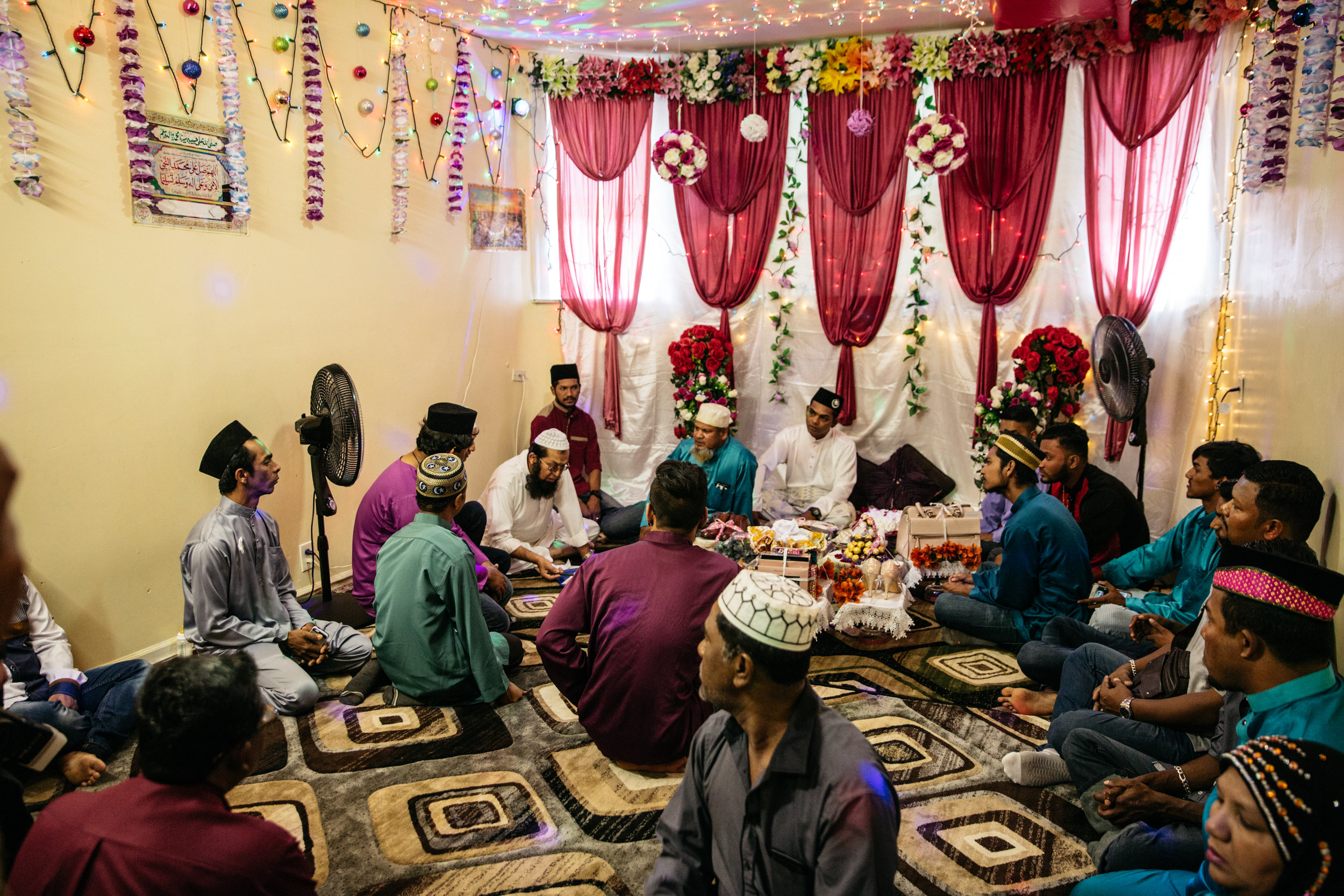
The signing of a marriage contract during a wedding in Rogers Park.
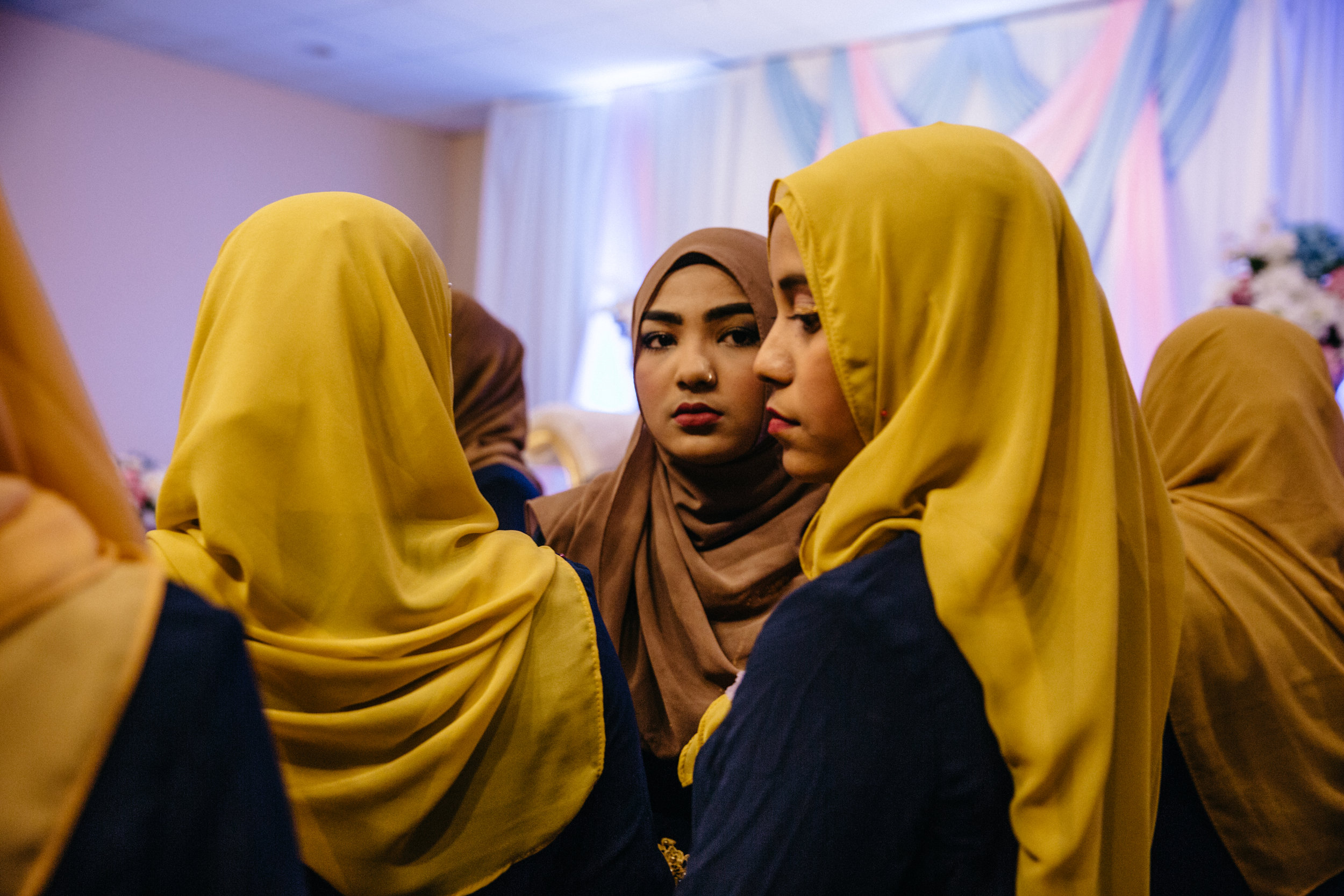
Hafizah, 18, at her sister in law's wedding. She is among the many Rohingya born in Malaysia to parents who had escaped the conflict in Myanmar.
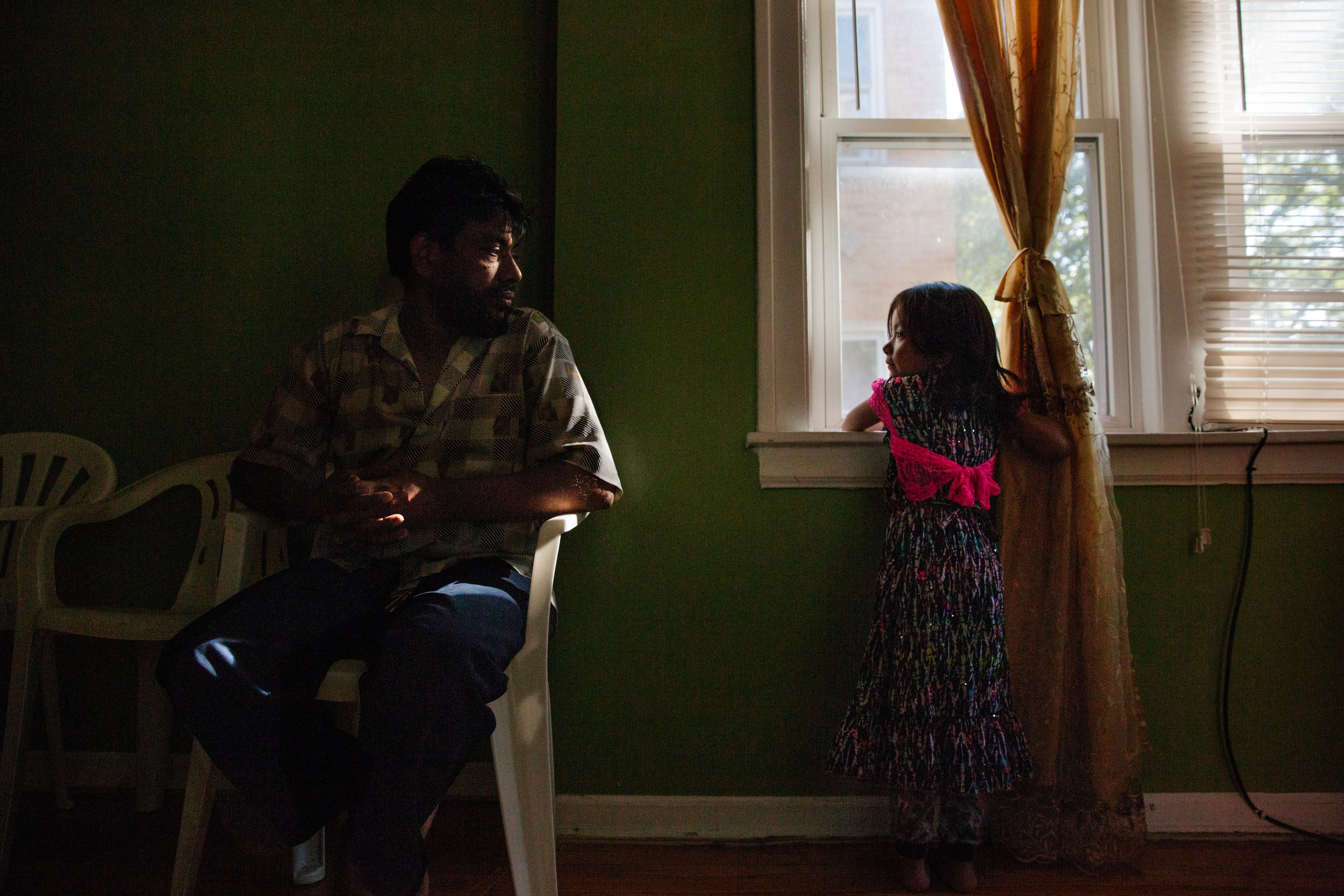
Abdul Aziz, 39, at home in Rogers Park, with his daughter, Arina, 4. As a teenager, he left his family in Myanmar’s Rakhine State, where the Rohingya are concentrated, to find safety in Malaysia.
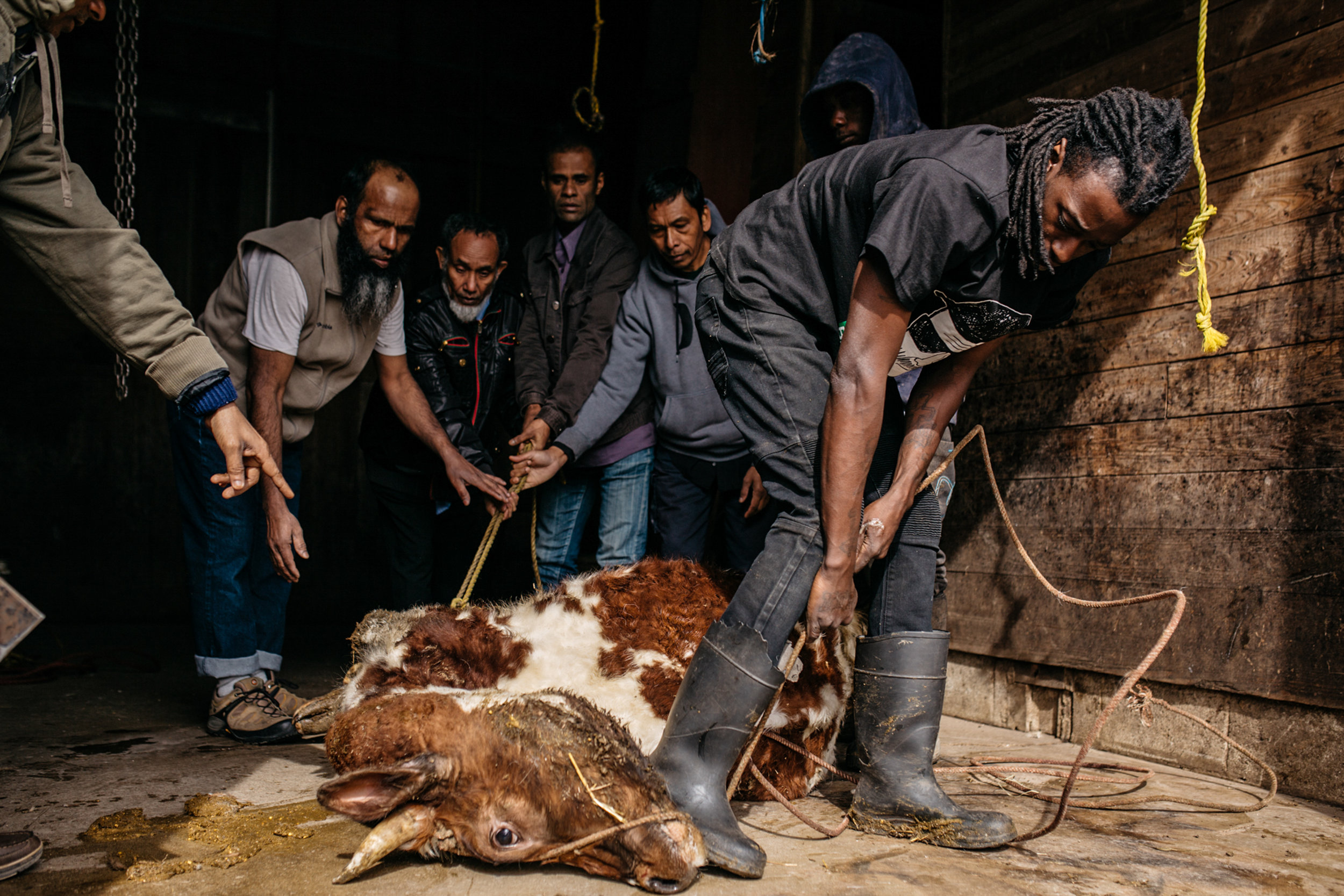
Curtis White, 30, helping Rohingya men hold down a cow for slaughter at a farm south of Chicago. The halal beef was served at the Rohingya Culture Center’s anniversary celebration and the rest was shared among families to take home.
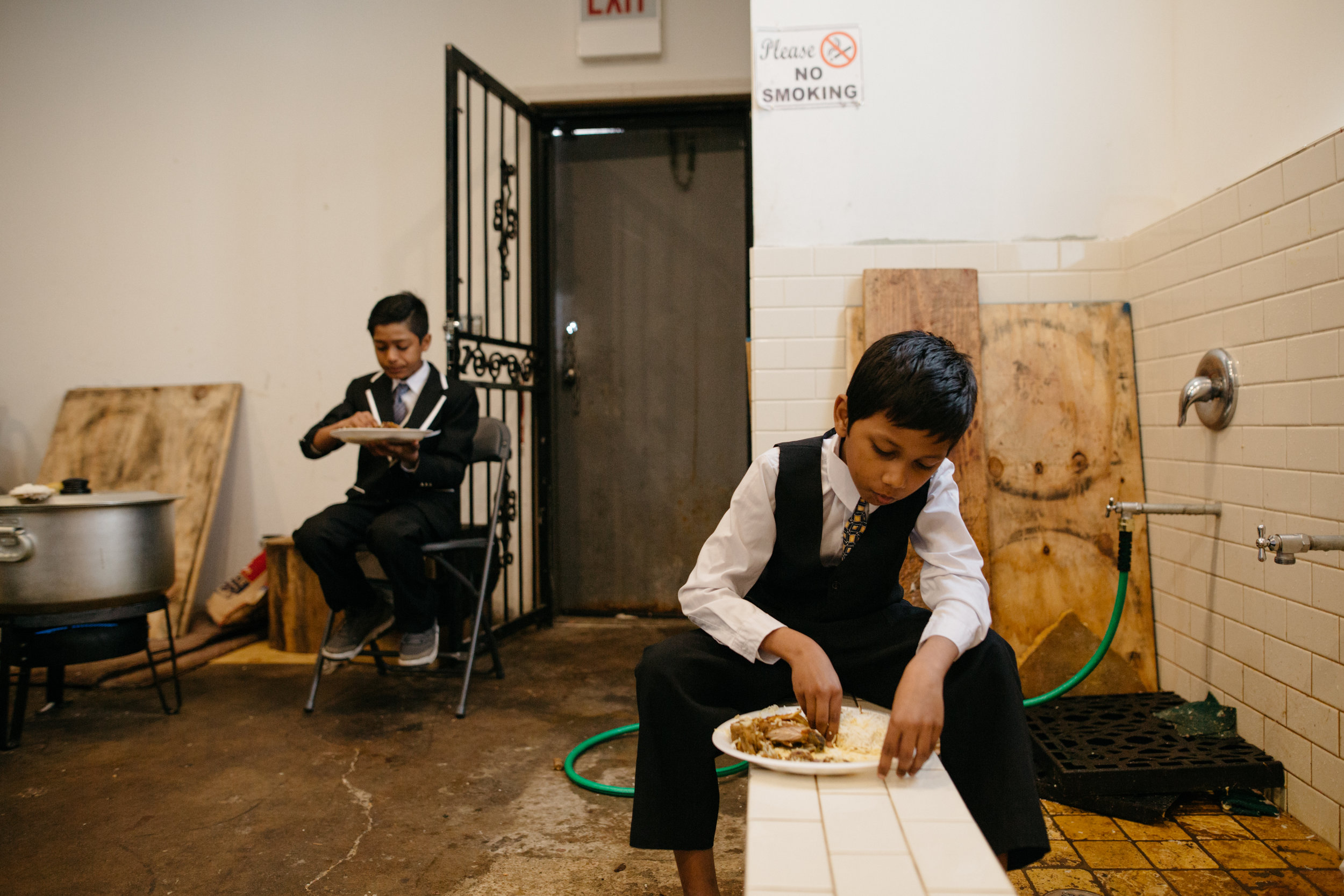
Children enjoying a meal in the back room of the Rohingya Culture Center during its anniversary celebration. The center offers resources for Rohingya new to the area, including English and Islamic classes, and plays host to community dinners and weddings. The center also helps people fill out paperwork, interpret bills and apply for health care coverage, and provides translators.
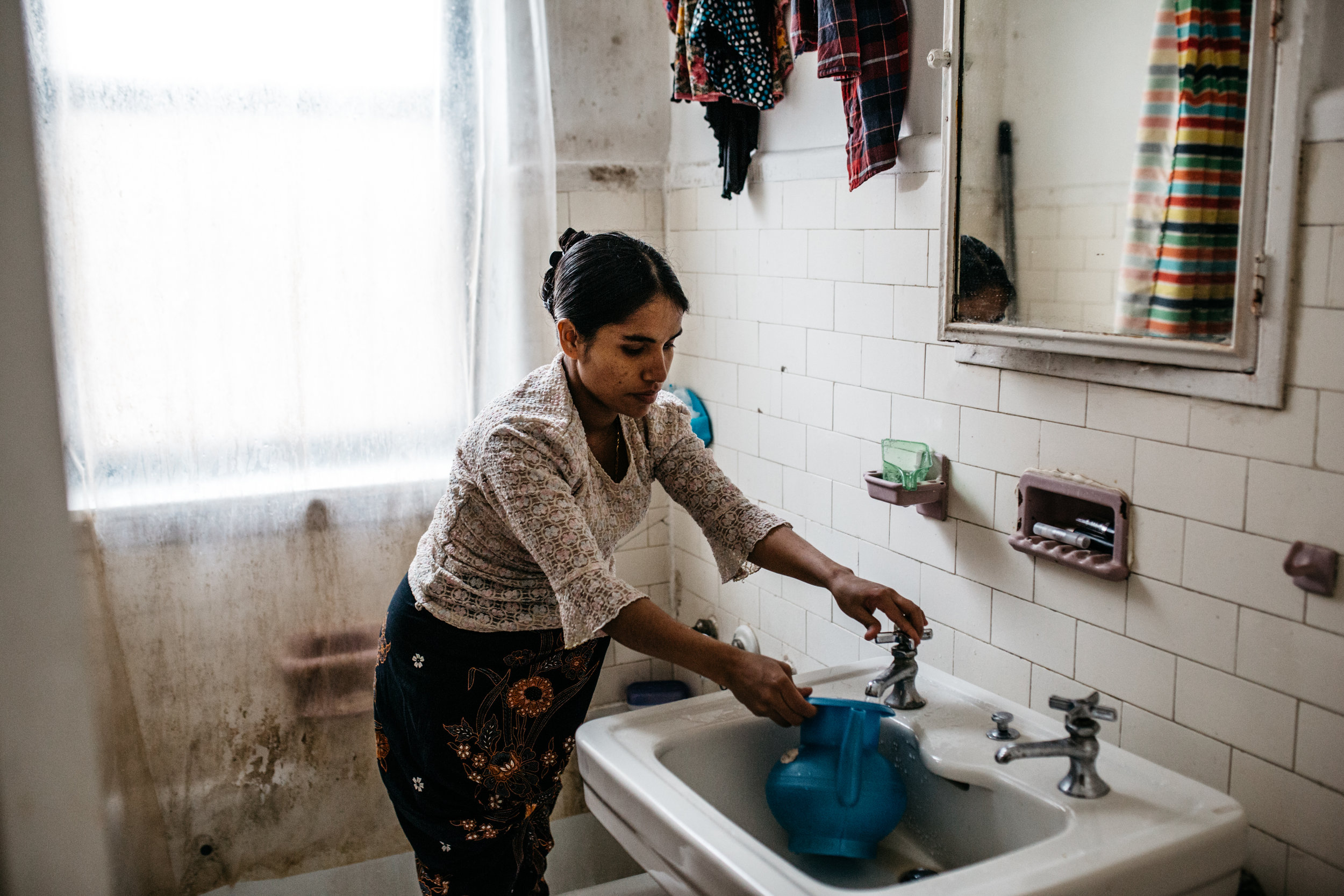
Hasina Zahir Ahmed, 19, is eight months pregnant with her first child. At age 16, she fled her village, Maungdaw, in Rakhine State.
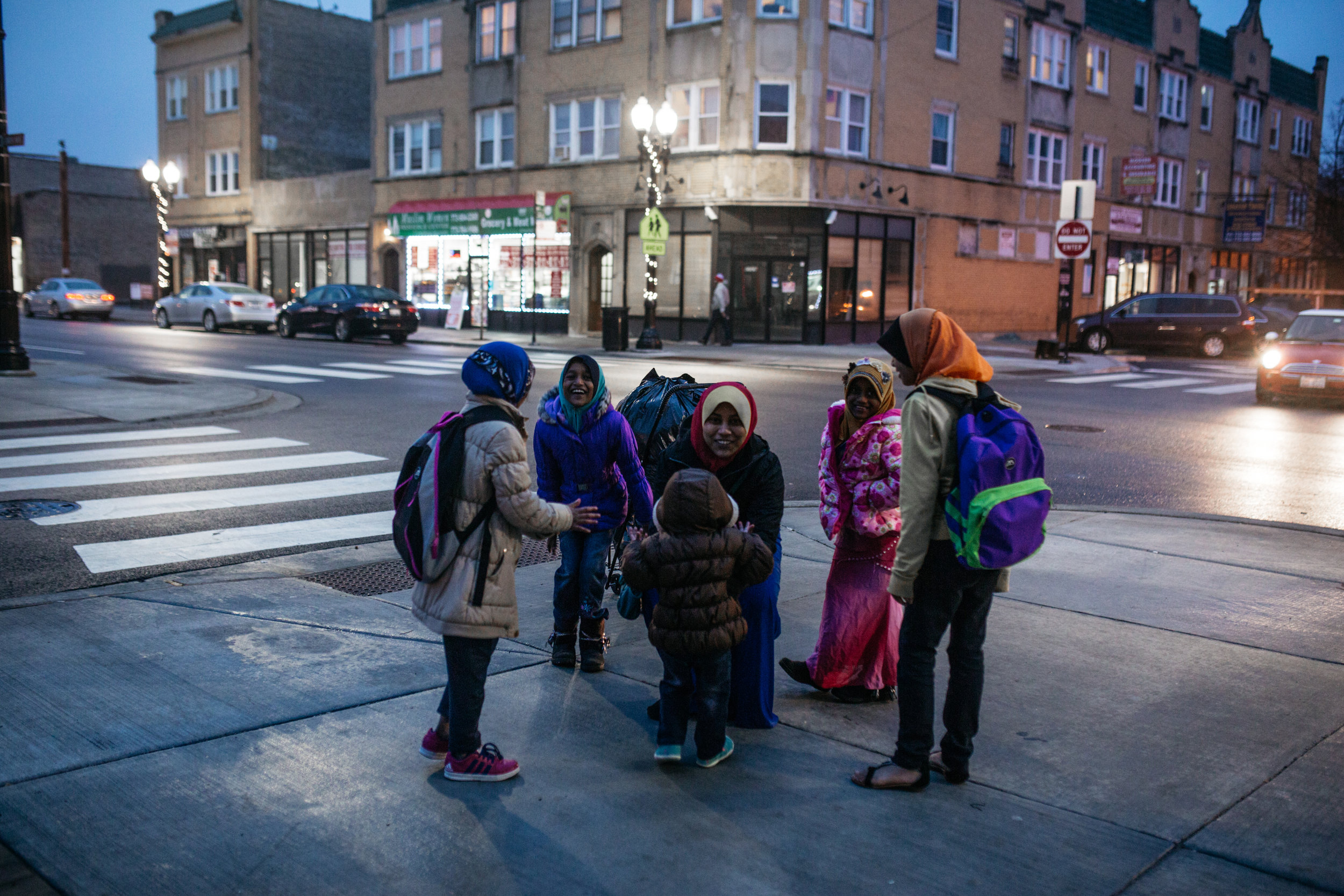
A family near the Rohingya Culture Center in Chicago.